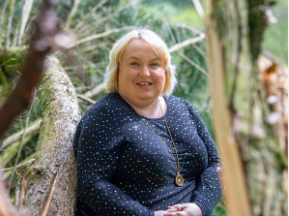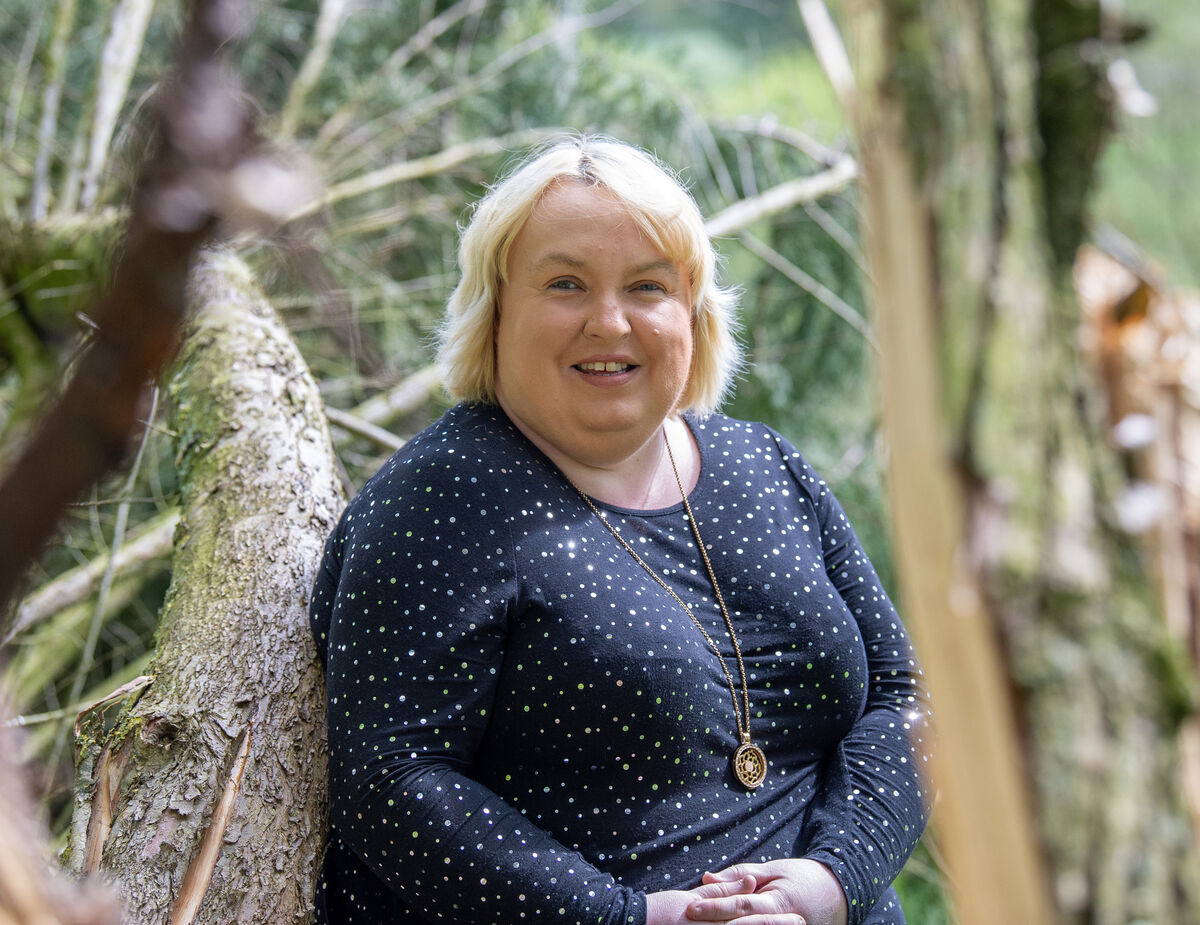
IRELAND has one of the highest rates of ovarian cancer in Europe, along with having the second lowest survival rates for the disease.
According to the Marie Keating Foundation, this equates to an average of 387 women in Ireland being diagnosed annually with ovarian cancer — with more than 50% surviving five years or more.
As World Ovarian Cancer Day (May 8) approaches, the charity warns that poor prognosis, late diagnosis, and a lack of effective treatment options make early detection of the disease even more crucial.
“It is the sixth most common cancer in Irish women, after non-melanoma skin cancer, and the fourth most common cause of death from cancer,” says the assistant director of nursing at the Marie Keating Foundation, Bernie Carter.
“It mainly affects women who have been through the menopause — usually over the age of 50 — but can also affect younger women.”
Symptoms are often not apparent until a late stage. However, what Gráinne Morgan-O’Rourke thought to be a “pulled muscle” proved a life-saving early warning.
In July 2022, the mother of two (ages 11 and six) felt a sharp pain in her stomach while lifting her younger child onto a stool.
Thinking she had pulled a muscle, she took painkillers for a couple of days and, while it “lingered for a couple of weeks”, she “thought nothing of it”.
A month later, she went to her GP for a routine smear test and mentioned the pulled muscle. Her doctor decided to investigate further and referred her for an ultrasound test, which revealed a large ovarian cyst.
“I was unaware of this, as I never suffered any abdominal pains apart from around the time of my period,” she says.
“My GP had also referred me to a gynaecologist in a local hospital who, on examination, said she could feel the cyst. She explained that she was referring me for a CT and MRI scan and to get blood tests. She said the results would be sent to the Mater Hospital in Dublin for review.”
Though the results came back clear, a consultant at the Mater said they were unsure what the ovarian mass was.
“I was offered surgery to either remove one fallopian tube and one ovary or undergo a full hysterectomy because, depending on the biopsy results, they may have to operate again.
“With this in mind, I opted for the full hysterectomy.”

The Monaghan woman successfully underwent the procedure a month later. However, a couple of weeks later at her follow-up appointment, she was told that tests on the cyst had revealed it had been cancerous, and she would need treatment to ensure that there were no traces of the disease left in her body.
“Initially, I was shocked and upset,” she says. “The consultant said there were cancer cells within the cyst, but they were contained and hadn’t ruptured during surgery, which was good.
“I was diagnosed with stage 1A clear cell ovarian cancer, which the surgery had got rid of. However, due to its aggressive nature, I was advised to have chemotherapy as an ‘insurance policy’ and to go and live my life and enjoy it.
“I was so relieved that the cancer was gone and I had been diagnosed at such an early stage, as this is quite rare with ovarian cancer.”
The 46-year-old, who is married to David, had her first of four chemotherapy sessions in January 2023.
She lost her hair and experienced side effects such as “horrendous pains” in her bones, oral thrush, reflux, peripheral neuropathy and exhaustion.
However, anti-sickness medication prevented nausea and vomiting — something she was very grateful for.
Today, almost 18 months post-surgery, she is doing well but still has joint pain and symptoms of surgical menopause. She is unable to take HRT [hormone replacement therapy] as the cancer was aggressive.
She has regular appointments with her medical team at the Mater Hospital and is feeling positive about the future.
“Everyone at the hospital has been great and are at the end of the phone if I need them,” she says.
“I am so thankful to them and my husband, parents, and friends for all their help and support. Yes, there is always the fear of recurrence. Yes, I have serious health anxiety, but I cannot live life in fear of something that may not happen again.”
Her advice to other women is to contact their GP if they notice any changes in their bodies, pain, or symptoms that last more than two weeks, “no matter how trivial”.
Ovarian cancer mainly affects women who have been through menopause, but it can also affect younger women.
Ms Claire Thompson, the consultant gynaecological oncologist who treated Gráinne at the Mater Hospital, advises women of all ages to know the possible signs.
“The incidence of ovarian cancer is on the increase,” she says. “The biggest challenge is that over 70% of women present at an advanced stage, so being aware of symptoms is therefore vital in trying to diagnose this cancer earlier.
“The symptoms of ovarian cancer can be vague and often very nonspecific. This can mean that women may not suspect there is a problem straight away, and it can also make the diagnosis challenging.”










